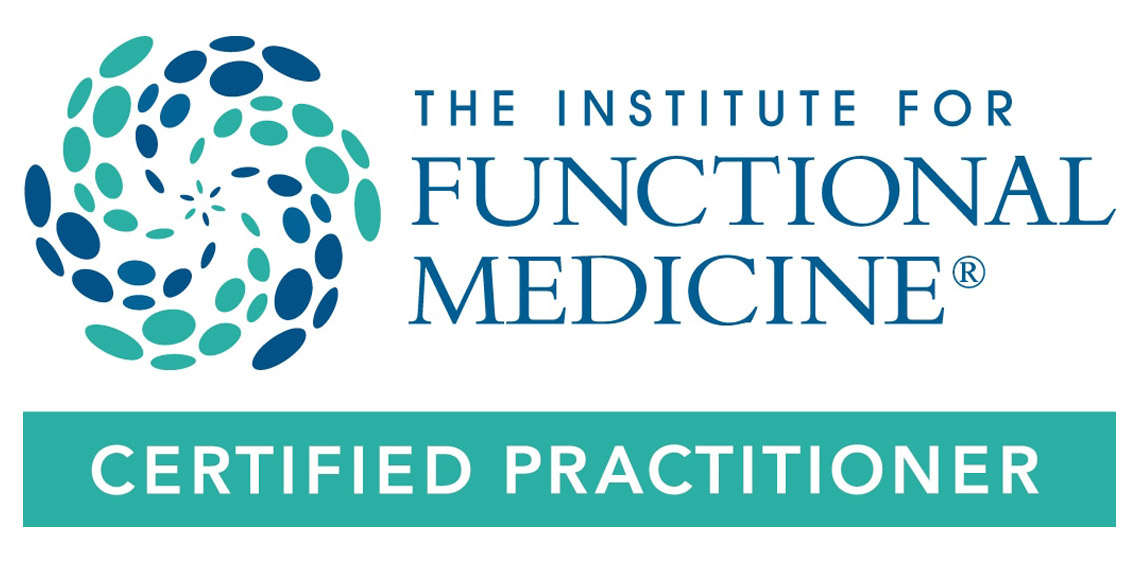Could you be on the Autoimmune Spectrum?
Introduction
Autoimmunity is set to become the epidemic of our times.
Autoimmune disease is set to become the epidemic of our times. Scientists are not sure of the reasons for this. According to the American Autoimmune Related Diseases Association (AARDA), 50 million or one in five people Americans suffer from autoimmune disease (2). This number is rising primarily due to a toxic environment. This includes such things as exposure to chemicals, our diet, our relationships, our level of infections and the amount of stress we have in our life. The mean age onset is 40-50 and it is more prevalent in women.
Autoimmune disease is one of the top 10 leading causes of death in women under the age of 65 (16). Autoimmune diseases are frequently chronic illnesses which means they are expensive to manage. 80% of dollars spent on healthcare ($1 trillion per year) is spent in treatment of chronic disease. By 2023 it is estimated that there will be 230 million Americans with chronic diseases, costing $4.2 trillion in treatment (4).
Autoimmune disease is a condition of chronic inflammation and immune dysregulation. When your body is exposed to dangerous invaders such as infections or problematic foods such as wheat, the immune system is called upon to get rid of the attacking invader through the production of cytokines and antibodies. When the process goes wrong, your immune system starts to target your body’s own cells, rather than the invaders. Some examples of common autoimmune diseases are rheumatoid arthritis, Hashimoto’s thyroiditis, vitiligo, psoriasis and Type 1 diabetes.
Autoimmune Triggers
One of the main triggers for autoimmune disease is gluten sensitivity.
This is because 80% of your immune system is found in your gut. Alessio Fasano MD, a researcher at Harvard University, published a paper showing that gluten in wheat causes intestinal permeability (5). He found that three things must be present for an autoimmune condition to develop: a genetic predisposition, a trigger such as gluten, and intestinal permeability (5). For people with susceptible genetics, exposure to gluten causes protein particles to enter the bloodstream through the gaps in the intestines. The immune system sees these particles as invaders, mounting an inflammatory response. The brain is particularly vulnerable, and you might notice a foggy brain, poor memory, fatigue and an inability to focus.
Stress is another big trigger for autoimmune disease.
Stress is another big trigger for autoimmunity. Increased stress is like pouring gasoline on a smoldering fire. Many retrospective studies have found that up to 80% of patients report uncommon emotional stress such as a divorce or loss of a job before first noticing the symptoms of autoimmunity (12). According to Hans Selye, stress can be looked at as the body’s non-specific response to change (14). Human beings are creatures of habit, and change produces a fight or flight in response to the physical, emotional, or mental challenges. The stress interacting with the autoimmunity becomes a vicious cycle where the disease itself starts causing significant stress in the patients.
The Autoimmune Spectrum
Autoimmune disease exists on a spectrum, ranging from radiant health all the way through to debilitating chronic disease (10). Once you have one autoimmune disease you are more likely to get more. This is known as co-morbidities. Tissue and organ damage from autoimmunity occurs long before we are first diagnosed through lab testing. For example, to be diagnosed with Addison’s disease 90% of the adrenal glands have to be destroyed. This is why it is important to find out if you are on the autoimmune spectrum early, before significant tissue damage has occurred and it becomes much harder to reverse.
How can you tell if you’re on the autoimmune spectrum?
Maintaining a list of your symptoms is a good place to start. It may seem as if your symptoms are non-specific and unrelated, but over time you will start to notice a pattern.
Some of the common symptoms are
- Headaches
- Anxiety and depression
- Psoriasis and dermatitis
- Brain fog and memory problems
- Cold hands and feet
- Allergies and asthma
- Frequent infections
- Thyroid issues
- Fatigue
- Inability to lose weight
- General feeling of malaise
- Muscle pain
Treatment of Autoimmunity
Current Treatments
Since autoimmunity is thought to be a disruption of the immune system, current treatments focus on immunosuppressant drugs such as corticosteroids like Prednisone. These drugs dampen the immune response to pathogens. Long term treatments leave the patient susceptible to dangerous infections such as flus or fungal infections, and monitoring is required because immunosuppressive drugs not only increase the risk of infection, but also the risks of cancer, cardiovascular disease and bone marrow suppression (8). These drugs do not treat the autoimmunity itself and remission is not a possibility. With conventional treatments, Autoimmunity is a disease where the symptoms are managed while the progression of the disease itself is not stopped.
The Efficacy of Chinese Herbs
Autoimmunity is a complex multi-factorial disease that requires treatments that not only regulate a disordered immune system, but also suppress runaway inflammation. Western medicine tends to take a “one disease, one target, one drug” approach where each of the body’s systems is siloed into its own specialty. This can be less effective for treating complex chronic disease, especially if you have more than one autoimmune disease. Multiple signaling pathways are involved in autoimmune disease, such as macrophage and T cells, and the multi-target ability of Chinese herbs, allows for a more sophisticated means to regulate disordered immune processes.
Artemisinin, derived from the Chinese herb, Qing Hao, possesses potent immunesuppressive abilities to treat autoimmune and allergic diseases. When the innate and adaptive immune systems are out of balance, excessive inflammation results. In one clinical trial, artemisinin delayed disease onset of rheumatoid arthritis and also lowered the severity of the symptoms, by suppressing inflammatory cytokine production. Not only this, the artemisinin had similar efficacy, with dramatically lowered side effects, compared to the standard antiarthritic drug, methotrexate (17).
Some scientists believe that Alzheimer’s disease is a form of autoimmune disease stemming from brain inflammation.
5.7 million Americans were living with Alzheimer’s disease in 2018, and the disease is projected to grow to impact 13.8 million people in the United States by the middle of the 21st century (1). Alzheimer’s disease is characterized by the deposition of β amyloid (Aβ) plaques, and tau neurofibrillary tangles together with inflammation leading to brain atrophy and neuronal loss.
Current drug treatments target the disease symptoms but do not halt or modify the disease progress. Curcumin, a popular herb derived from the spice turmeric, has shown promise as a treatment option. Tang & Taghibiglou found that curcumin has the potential to be more effective than current treatments (13). Curcumin can impact a diverse range of molecular targets and signaling pathways.
Could Curcumin be more effective than NSAIDS?
Many people with chronic inflammation and pain (often resulting from autoimmunity) take NSAIDs for pain relief. However, using NSAIDs for six months or longer can lead to inflammation of the intestines and is linked with intestinal permeability. NSAIDs also do not treat the cause of inflammation, merely the symptoms. Curcumin is a potent pain reliever that can also prevent inflammation. One of the most important targets of curcumin is inhibiting the production of pro-inflammatory cytokines, in other words, dampening inflammation (7).
Curcumin is also effective against depression, a condition that often accompanies, autoimmune disease. Curcumin was used by traditional Chinese medicine to manage stress and depression-related disorders. Scientists now believe that brain inflammation underlies depression (9). Currently, no more than half of the patients treated show a response or remission from major depression with usual standard of care: SSRIs such as fluoxetine and venlafaxine (6).
Could curcumin be more effective, with fewer side effects? A 2014 randomized controlled trial showed a comparable efficacy, comparing Curcumin treatment (1000 mg/day) with fluoxetine treatment, according to the response rates measured by the HDRS-17 (11). There are many hypotheses as to why curcumin is so effective, but the key idea is that curcumin has the ability to modulate several different pathways that contribute to neuroinflammation, including reducing pro-inflammatory cytokine pathways, reducing oxidative stress and protecting against the loss in dopaminergic neurons (15).
Repairing Intestinal Permeability
Treating autoimmune disease would not be effective without restoring and repairing intestinal permeability. This involves removing foods that are causing issues. The main culprit is gluten but there are other foods such as dairy, corn and sugar that are also known to be problematic. A complete program includes an elimination diet to find out what foods are problematic. Specialized lab tests such as the ALCAT 5, can also help measure adverse reactions to dietary substances. As well, a comprehensive stool analysis can be done to look for pathogenic microorganisms, undigested food particles and markers for inflammation.
Conclusion
Autoimmune disease is a growing epidemic that is fanned by our toxic environment and the high levels of stress we carry. Conventional treatments are focused on symptom relief and offer limited hope for recovery. Chinese Medicine and Functional Medicine however offer solutions that can target the causes of autoimmune problems and result in disease reversal and even full recovery.
The adaptogenic qualities of Chinese herbs can regulate complex and disordered immune processes, while a consistent adherence to diet and lifestyle changes, such as a gluten-free diet together with stress reduction protocols, offer the patient the opportunity to heal intestinal permeability, one of the primary causes of autoimmune disease. A regular monitoring of symptoms together with advanced lab testing can help diagnose problems early, avoiding significant organ damage and leading to a faster recovery path.
References
- Alzheimer’s Association. (2018). 2018 Alzheimer’s Disease Facts and Figures. Alzheimer’s & Dementia,14(3), 367-429. https://doi.org/10.1016/j.jalz.2018.02.001
- American Autoimmune Related Disease Association. (2017). How many Americans have an autoimmune disease? Retrieved from https://www.aarda.org/knowledge-base/manyamericans-autoimmune-disease/
- American Autoimmune Related Disease Association. (n.d). Tips for Getting a Proper Diagnosis of an Autoimmune Disease. Retrieved from https://www.aarda.org/wpcontent/uploads/2017/04/tips_for_auto_diagnosis.pdf
- Chatterjee, A. Kubendran, S., King, J., & DeVol, R. (2014). Checkup Time: Chronic Disease and Wellness in America. Milken Institute. Retrieved from https://assets1c.milkeninstitute.org/assets/Publication/ResearchReport/PDF/Checkup-Time-Chronic-Disease-and-Wellness-in-America.pdf
- Fasano, A. (2012). Zonulin, regulation of tight junctions, and autoimmune diseases. Annals of the New York Academy of Sciences, 1258(1), 25-33. https://doi.org/10.1111/j.1749-6632.2012.06538.x
- Gibbons, R., Hur, K., Brown, C., Davis, J., & Mann, J. (2012). Benefits from antidepressants: synthesis of 6-week patient-level outcomes from double-blind placebo-controlled randomized trials of fluoxetine and venlafaxine. Arch Gen Psychiatry, 69(6), 572-579. https://doi.org /10.1001/archgenpsychiatry.2011.2044
- Gupta, S., Patchva, S., Koh, W., & Aggarwal, B. (2012). Discovery of curcumin, a component of golden spice, and its miraculous biological activities. Clinical and Experimental Pharmacology and Physiology, 39(3), 283-299. https://doi.org/10.1111/j.1440-1681.2011.05648.x
- Hsu, D. & Katelaris, C. (2009). Long-term management of patients taking immunosuppressive drugs. Australian Prescriber, 32(3). DOI: 10.18773/austprescr.2009.035
- Kanchanatawan, B., Tangwongchai, S., Sughondhabhirom, A., Suppapitiporn, S., Hemrunrojn, S., Carvalho, A., & Maes, M. (2018). Add-on Treatment with Curcumin Has Antidepressive Effects in Thai Patients with Major Depression: Results of a Randomized Double-Blind Placebo-Controlled Study. Neurotoxicity Research, 33(3), 621–633. https://doi.org/10.1007/s12640-017-9860-4
- O’Bryan, T. (2016). The Autoimmune Fix. New York, NY: Rodale
- Sanmukhani, J., Satodia, V., Trivedi, J., Patel, T., Tiwari, D., Panchal, B., Goel, A., & Tripathi, C. (2014). Efficacy and safety of curcumin in major depressive disorder: a randomized controlled trial. Phytotherapy Research, 28, 579-585. https://doi.org/10.1002/ptr.5025
- Stojanovich, L. & Marisavljevich, D. (2008). Stress as a trigger of autoimmune disease. Autoimmunity Reviews, 7(3)3, 209-213. https://doi.org/10.1016/j.autrev.2007.11.007
- Tang, M., Taghibiglou, C. (2017). The Mechanisms of Action of Curcumin in Alzheimer’s Disease. Journal of Alzheimer’s Disease, 58(4), 1003-1016. https://doi.org/10.3233/JAD-170188
- The American Institute of Stress. (n.d.). What is Stress? Retrieved from https://www.stress.org/what-is-stress
- Tizabi, Y., Hurley, L., Qualls, Z., Akinfiresoye, l. (2014). Relevance of the anti-inflammatory properties of curcumin in neurodegenerative diseases and depression. Molecules, 19(12), 20864-20879. https://doi.org/10.3390/molecules191220864
- Walsh, S., & Rau. L. (2000). Autoimmune diseases: a leading cause of death among young and middle-aged women in the United States. American Journal of Public Health, 90(9). Retrieved from https://www.ncbi.nlm.nih.gov/pmc/articles/PMC1447637/
- Wu, Y., Tang, W., & Zuo, J. (2015). Development of artemisinin drugs in the treatment of autoimmune diseases. Science Bulletin, 61(1), 37-41. https://doi.org/10.1007/s11434-015-0975-9

Dr Josse Ford
Josse Ford is the Founder and Director of the Alchemy Radiant Health clinic in Encinitas, California. She specializes in the integration of Chinese medicine and functional medicine to treat the whole human holistically and to focus on the root cause of illness




